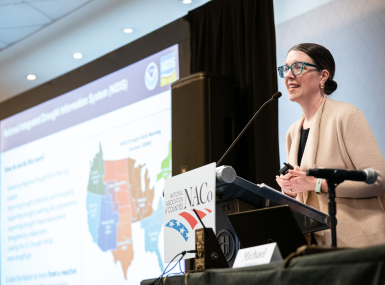NOAA seeks input on the administration’s goal to conserve 30 percent of lands and waters by 2030
Upcoming Events
Related News

Key Takeaways
On October 29, the National Oceanic and Atmospheric Administration (NOAA) announced it is accepting public comments on how the agency can help achieve the goals and recommendations in a report titled Conserving and Restoring America the Beautiful 2021. The “America the Beautiful” initiative is the Biden administration’s goal of conserving 30 percent of our nation’s lands and waters by 2030, also known as 30 by 2030. NOAA will hold listening sessions on November 8 at 2 p.m. ET and November 16 at 4 p.m. ET. Public comments are due on December 28. Click here for more information.
NOAA is seeking input on advancing America the Beautiful and guiding its conservation and restoration of ocean, coastal and Great Lakes Resources. Specifically, NOAA is requesting actions it should consider taking to support tribal, state and local governments, in addition to non-governmental entities to advance their efforts to conserve and restore U.S. lands and waters. NACo previously sent a letter to President Biden detailing county concerns and priorities in the implementation of America the Beautiful. The initial report, released in May, outlines the following eight principles that will guide the focus of this initiative:
- Pursue a collaborative and inclusive approach to conservation.
- Conserve America’s lands and waters for the benefit of all people.
- Support locally led and locally designed conservation efforts.
- Honor tribal sovereignty and support the priorities of tribal nations.
- Pursue conservation and restoration approaches that create jobs and support healthy communities.
- Honor private property rights and support the voluntary stewardship efforts of private landowners and fishers.
- Use science as a guide.
- Build on existing tools and strategies with an emphasis on flexibility and adaptive approaches.
The agencies spearheading America the Beautiful plan to release their first progress report by the end of 2021. The report will include feedback received through public comments and an overview for addressing these eight areas of focus.
Counties support federal conservation policies developed in coordination with intergovernmental partners that meet local environmental and economic needs. Additionally, counties believe the federal government should provide financial and other incentives to support the most cost-effective planning and management programs to meet federal conservation goals while respecting private property rights.
NACo will continue to engage with the administration on these issues and keep members informed of any updates.
Advocacy
NOAA announces $2.6 billion to strengthen resiliency of coastal communities

Related News

NOAA outlines help for counties navigating drought’s growing risks
In April, the National Integrated Drought Information System will launch the Mid-Atlantic Drought Early Warning System, which will help county officials allocate resources and attention to mitigate drought-related disasters.
Next step on PILT requires more outreach
Facing headwinds on making PILT funding permanent, county veteran Rep. Celeste Maloy (R-Utah) told county officials to reach out to any member of Congress who will listen.
